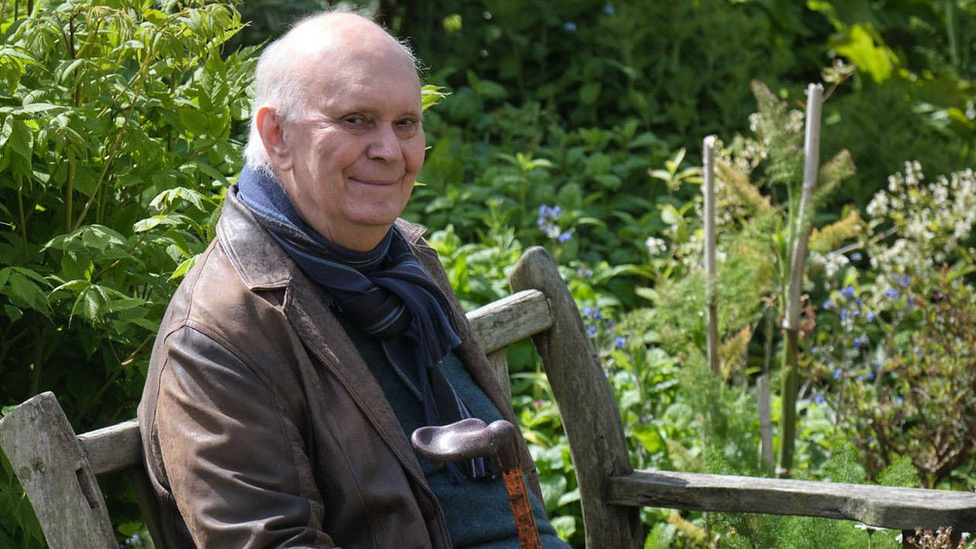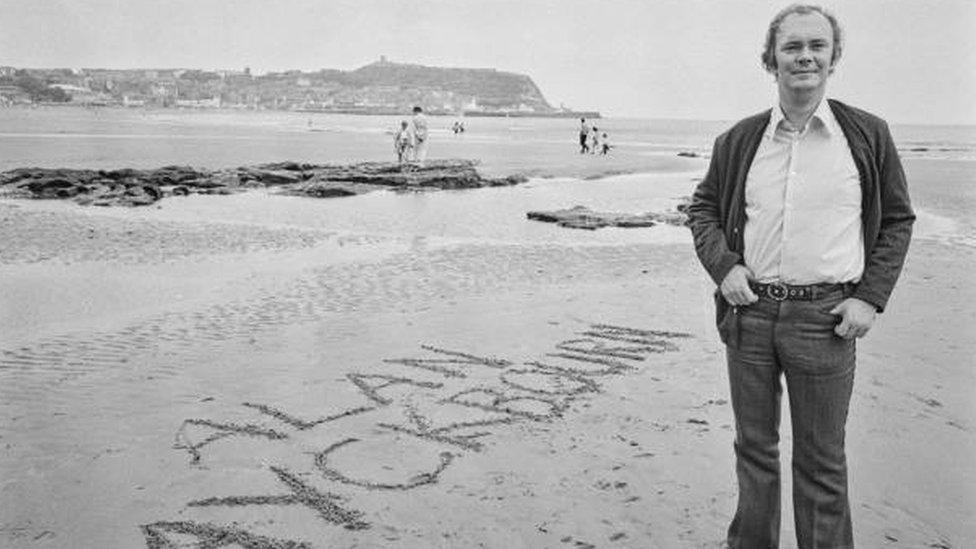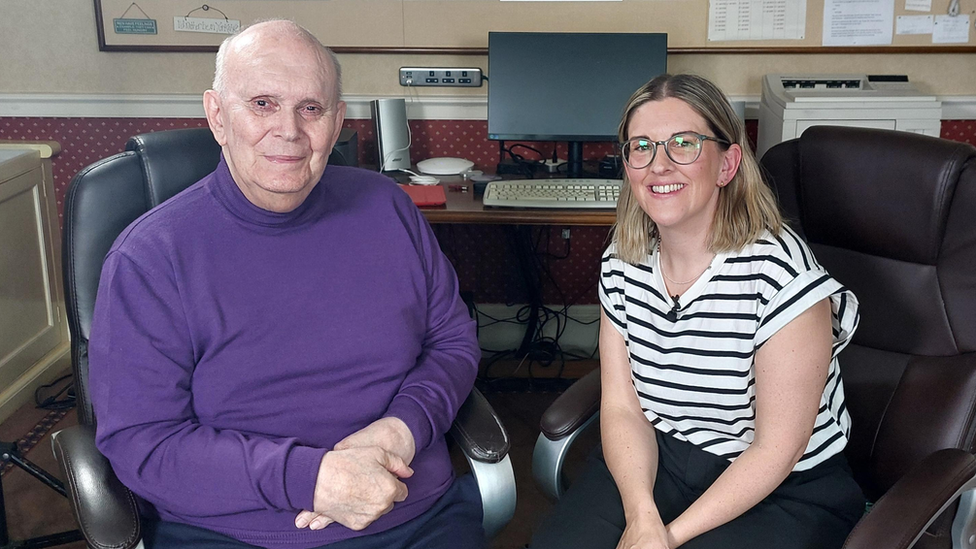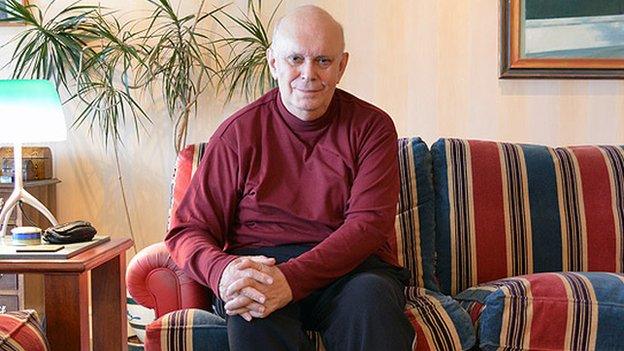Playwright Sir Alan Ayckbourn on his career in Scarborough
- Published

London-born Alan Ayckbourn came to Scarborough in the late 1950s
Sitting in his Scarborough home that once belonged to the "extraordinary" Stephen Joseph, playwright Sir Alan Ayckbourn reflects on his career.
Now 85 years old, Sir Alan is getting ready to debut his 90th play and confessed that he had already written his 91st.
His expansive career has won him Tony and Olivier awards for plays such as A Chorus of Disapproval, but the start of his success story was somewhat unorthodox.
Unlike other struggling artists who move to the capital for their big break, Sir Alan left his life in London to find fame in the Yorkshire seaside town of Scarborough.
'Experimental and daring'
"I was very fortunate in that I was a struggling actor at the time and I came here in the late 1950s as a stage manager, wanting to be an actor," he tells the BBC.
"It was run by this extraordinary man, Stephen Joseph, who was experimental and daring."
Sir Alan recalls marvelling at Mr Joseph's unique attire, as he often sported quirky leather trousers and "a beanie with butterflies pinned into it".
"Everyone looked at him and thought, 'what an extraordinary bloke'," he remembers.

Sir Alan got his start as a stage manager in Scarborough
Sir Alan owed his start to Stephen Joseph - whom the theatre in Scarborough is named after- when he willed him to stop acting and instead encouraged him to write and direct.
"Every summer, I wrote a play for Scarborough and it was very good training because you had to write a play that was worthy of the company's ethics and your fellow compatriots."
Starting out with a £5 budget, in one room with a "makeshift set", Sir Alan says Scarborough provided the perfect backdrop for his plays.
"I think it (Scarborough) is my sort of town, it's the right size for me.
"I don't write big city plays or write small village plays.
"But a town like Scarborough, which has its resident crowds that you get to know over the years and an incredible influx of visitors all the time, means it's never quite the same."
Although, the seaside town today looks very different to how it did in the 1950s.
"It had two rather smart hotels- the Grand and the Royal- and people would drive up from London," Sir Alan says.
"They would say 'hello darling' and stand about in long evening dresses in the Pavilion Square.
"Then it became the business centre, and then there was a terrible period when the rockers arrived on their motorbikes and everyone said we were going into anarchy.
"But now, families are back and it's much calmer and less daunting."

Sir Alan spoke with the BBC's Bek Homer ahead of his 85th birthday
When Stephen Joseph passed away in 1967, Sir Alan was asked by locals to take over direction at the theatre.
"For the next 40-plus years, I ran it and was in the process of submitting plays to myself, so I never turned one down!" he laughs.
"I was very lucky that I had a wonderful opportunity."
Despite racking up awards, Sir Alan continues to develop his plays at the town's theatre, giving Scarborians "the first look" at all of his work.
He said the taste of people in the town "tended to guide the London taste".
For the accomplished playwright, the arts in towns such as Scarborough often went "unsung", despite "masses going on".
"I'm a great regionalist, even now, and I think far too much money is spent on the London side of things and more should be spent regionally," he says.
"It doesn't all have to happen within two feet of Whitehall."
Despite the creeping spectre of age, Sir Alan still puts on two shows a year and is "scratching around" for play number 92.
"There's something about making something with joy that is infectious I think," he smiles.
"Many of the people that have been affected by my work have stayed with me for a very long time."

Follow BBC Yorkshire on Facebook, external, X (formerly Twitter), external and Instagram, external. Send your story ideas to yorkslincs.news@bbc.co.uk, external.
Related topics
- Published20 May 2020

- Published12 June 2014
